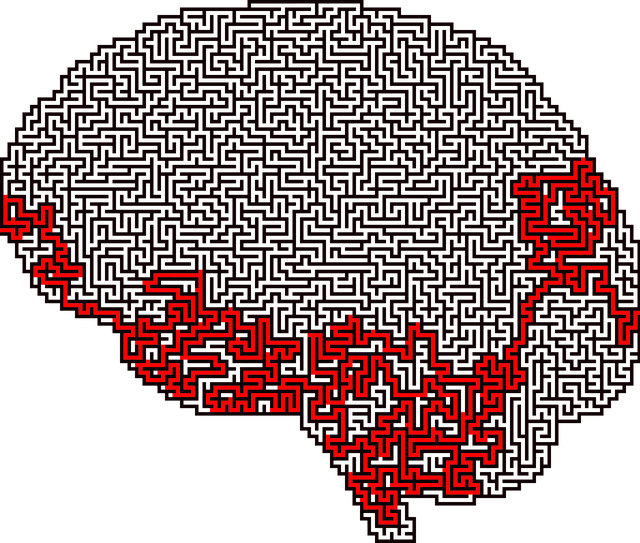Longmont Mindfulness Therapy (LMT) focuses on community mental health by assessing local needs, collaborating with organizations, and gathering resident feedback. They tailor initiatives like burnout prevention and social skills training to specific challenges using SMART goals. LMT increases access to resources by 20% in underserved areas within six months. Their outreach programs integrate interactive elements, mental wellness coaching, and workshops on stress management, ensuring safety through risk assessment. They measure impact using KPIs to identify program improvements and celebrate successes, promoting cultural sensitivity in mental healthcare for stronger communities.
Community outreach programs play a vital role in fostering connection and growth, especially for organizations like Longmont Mindfulness Therapy. To make a meaningful impact, understanding local needs and setting realistic goals is essential. This article explores strategies for designing engaging programs that resonate with diverse communities, while also offering practical advice on measuring success and continuously improving outreach efforts. By implementing these approaches, Longmont Mindfulness Therapy can extend its reach and positively influence more lives.
- Understanding Community Needs and Setting Realistic Goals
- Designing Engaging Programs that Foster Connection and Growth
- Measuring Impact, Celebrating Success, and Continuously Improving Outreach Efforts
Understanding Community Needs and Setting Realistic Goals

Understanding community needs is a foundational step when implementing outreach programs like those offered by Longmont Mindfulness Therapy. It involves assessing local mental health landscapes, identifying gaps in services, and gauging cultural sensitivities to ensure interventions resonate with target populations. This process includes gathering feedback from residents, collaborating with existing community organizations, and conducting risk assessments for mental health professionals to navigate complex social dynamics safely and effectively. By thoroughly understanding the needs, Longmont Mindfulness Therapy can tailor its outreach initiatives to address specific challenges, whether those are related to burnout prevention strategies for healthcare providers or enhancing social skills training programs.
Setting realistic goals is another critical aspect of successful implementation. These should be SMART (Specific, Measurable, Achievable, Relevant, and Time-bound) and aligned with the identified community needs. For instance, a goal could be increasing access to mindfulness resources by 20% in underserved areas within six months. This approach ensures that efforts are focused, measurable, and have a clear impact. Moreover, setting realistic goals prepares Longmont Mindfulness Therapy for potential challenges, enabling them to adapt strategies as needed while maintaining a steadfast commitment to community wellness.
Designing Engaging Programs that Foster Connection and Growth

In designing engaging programs that foster connection and growth within community outreach initiatives like those offered by Longmont Mindfulness Therapy, it’s essential to integrate interactive elements that cater to diverse interests and needs. Mental wellness coaching programs development should focus on creating a safe and inclusive environment where participants can explore their mental health, share experiences, and learn from one another. Incorporating workshops on stress management, for instance, allows individuals to gain practical tools and techniques to cope with everyday pressures, enhancing overall well-being.
Risk assessment for mental health professionals plays a crucial role in ensuring these programs are both effective and safe. By understanding potential risks and implementing appropriate safeguards, organizations like Longmont Mindfulness Therapy can facilitate meaningful growth while mitigating harms. This holistic approach not only promotes the development of robust Mental Wellness Coaching Programs but also ensures that Stress Management Workshops Organization are conducted with the highest standards of care and ethics.
Measuring Impact, Celebrating Success, and Continuously Improving Outreach Efforts

Measuring the impact of community outreach programs is a crucial step for organizations like Longmont Mindfulness Therapy to understand their effectiveness. By tracking key performance indicators (KPIs), such as the number of individuals reached, engagement rates, and changes in mental health outcomes, the program can identify what’s working and what needs improvement. This data-driven approach allows for continuous refinement, ensuring that outreach efforts are tailored to the specific needs of the community.
Celebrating success stories is another vital aspect of refining community outreach. Recognizing milestones achieved, whether it’s increasing awareness about mental health services or successfully implementing programs like Depression Prevention and Conflict Resolution Techniques, boosts morale and inspires further innovation. Furthermore, sharing these successes within the organization and with stakeholders highlights the positive impact of their efforts. This can foster a culture of cultural sensitivity in mental healthcare practice, where every interaction is an opportunity to build stronger, more resilient communities.
Implementing successful community outreach programs, as exemplified by Longmont Mindfulness Therapy, involves a strategic approach. By understanding local needs and setting achievable goals, organizations can design impactful initiatives that foster connection and personal growth. Regular measurement of these efforts allows for continuous improvement, ensuring that resources are allocated effectively to address the most pressing community concerns. This holistic process not only strengthens community bonds but also enhances the overall well-being of all involved.














